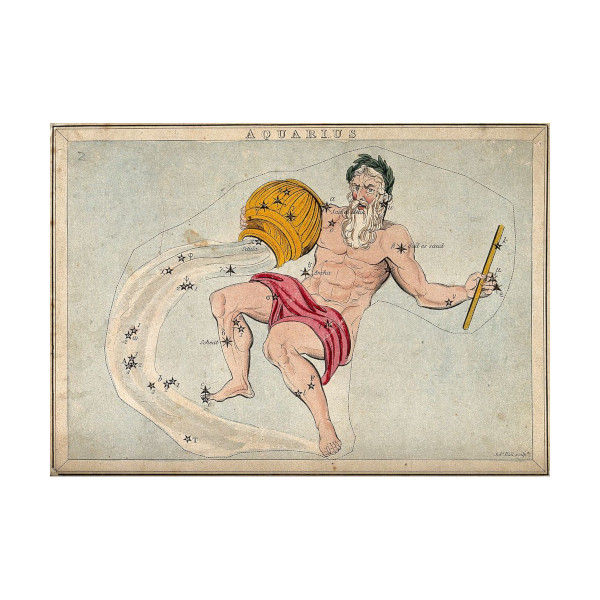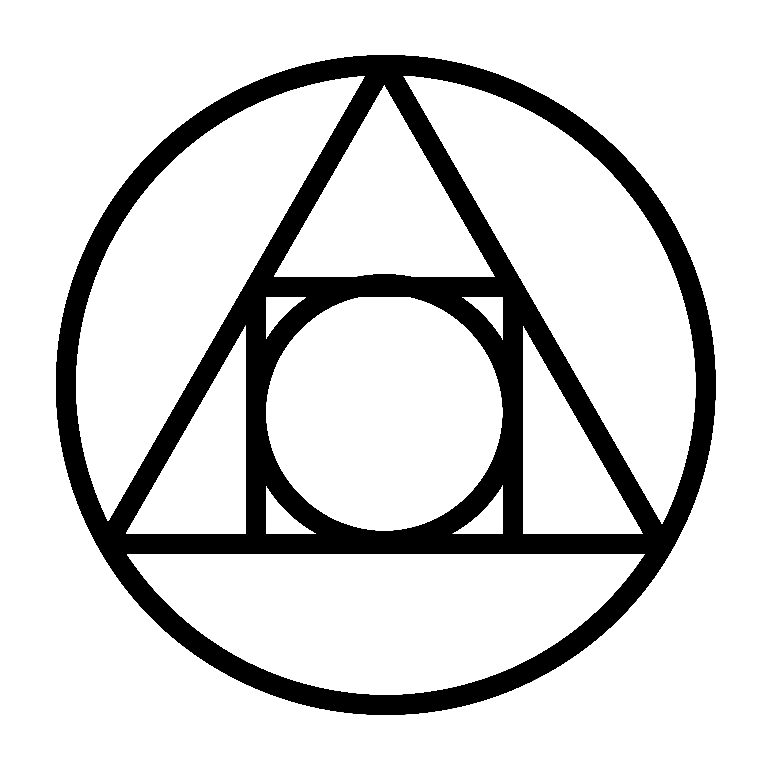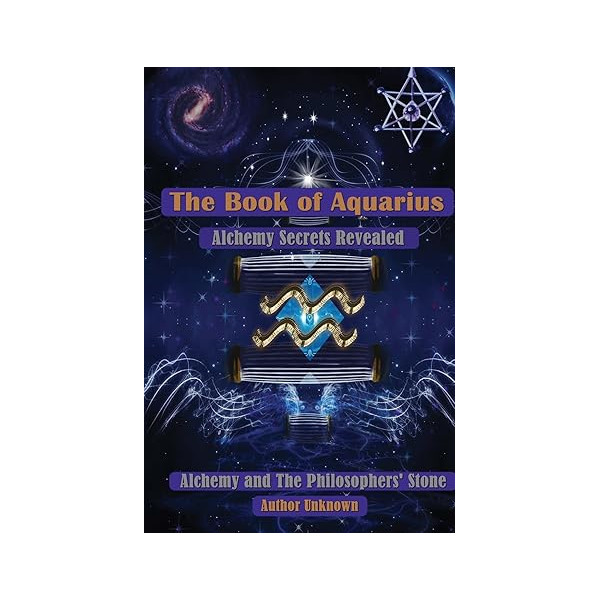Review: The Book of Aquarius (Anonymous)
Released March 20, 2011; updated January 15, 2012.
The anonymous author of The Book of Aquarius promises a jailbreak: strip alchemy of its “hooded cloaks,” throw open a twelve-millennia secret, and hand the public kitchen-table instructions for the Philosophers’ Stone. The book’s thesis is arresting in its simplicity—alchemy is “the art of imitating and accelerating Nature,” the Stone is “real” and “you can make it at home,” and the classical literature, once decoded, always meant exactly that. The text then proceeds in three broad movements: a demystifying manifesto, a collage of historical citations marshaled as authority, and a set of practical directions that claim to operationalize the Art for the lay reader.
What the book argues—and how
The opening chapters set the tone: no “mystical language,” no allegory, only plain speech and a repeated insistence that truth is “simple, beautiful and easy to understand.” The Stone, we’re told, is concentrated “life-energy,” the same principle that animates breath and food; alchemy simply creates the “protected conditions” for Nature to complete its work quickly. This naturalization of alchemy—its recasting as a kind of vitalist materials science—undergirds every claim that follows, from metallic transmutation to radical somatic rejuvenation. Along the way the author stakes out a polemical stance against occultist and Jungian “spiritual alchemy,” framing that interpretive tradition as a nineteenth-century detour from the “real” (i.e., laboratory) work.
Structurally, the book interleaves its own assertions with long excerpts from period sources (Sendivogius, Basil Valentine, Peter Bonus, Philalethes, Paracelsus, Bacon, and others). The effect is to build a chorus of venerable voices apparently singing in unison: Nature is one; art must imitate Nature; the Stone ripens imperfect metals; the true work is singular and simple; and the product is a universal medicine for body, mind, spirit, plants, and minerals. The cumulative weight of citation is impressive in volume, and for a newcomer the anthology-like rhythm can feel persuasive.
The practical section—always the lodestar for readers of modern alchemy manuals—promises detailed, step-by-step guidance “from theory to making,” culminating in operational directions (the chapters are mapped explicitly: theory in 3–18, practice in 19–30, history in 34–49, and so on). While this review avoids reproducing procedural specifics, the thrust is unmistakable: the Stone is attainable with patience, basic apparatus, and fidelity to “natural” conditions.
What works
Clarity of intent. The author’s commitment to accessible prose is genuine. Where much alchemical writing luxuriates in symbol and paradox, this book offers a plain-speech exegesis that lowers the intimidation barrier and invites hands-on curiosity. For readers alienated by arcana, that alone is a service.
Historical immersion. The generous quotation gives the audience a panoramic tour of sources they might never encounter. Even if one disputes the through-line, the book can function as a gateway anthology, pointing readers to Sendivogius’ New Chemical Light, Norton’s Ordinal, and Bacon’s New Atlantis, among others.
A coherent—if contestable—frame. By insisting that alchemy is natural philosophy in action and that “we do not make anything; Nature does,” the book supplies a unifying heuristic. Read the corpus as a single method, the author urges, and the literature snaps into focus. Within the book’s own logic, that coherence is satisfying.
Where it falters
Extraordinary claims, ordinary evidence. The text asserts that the Stone “makes old people young,” “heals all forms of sickness,” obviates eating and breathing at high potency, grows plants “in any condition,” and transmutes metals to silver or gold—then leans almost entirely on historical quotation and assertion to substantiate those claims. The book’s anti-allegorical stance, ironically, makes this gap more conspicuous: if everything is literal, where are the literal demonstrations subject to present-day scrutiny? The answer offered—centuries of authority and the reader’s eventual experiment—will not satisfy a critical modern reader.
Selective historicism. The citations are real; the harmonization is debatable. Early modern alchemical texts are notoriously multivocal: practical, theosophical, medical, metallurgical, and yes, allegorical. To collapse that complexity into a single “naturalist lab manual” tradition risks an anachronism—reading the past as prologue to a twenty-first-century how-to. The book acknowledges disagreement only to dismiss it as ignorance or imposture, which flattens a rich scholarly conversation.
Vitalist vocabulary without mechanism. Calling the Stone “life-energy” is rhetorically neat, but the concept never advances beyond metaphor for a modern reader: no operational definition, no measurable parameters, no testable predictions beyond success/failure of the entire magnum opus. The text’s repeated claim that truth is “simple” cannot substitute for a mechanism that survives contact with contemporary physics, chemistry, or biology.
Practical omissions and ethics. The promise that one can “make it at home” arrives with little modern safety scaffolding—no chemical hygiene plan, no toxicology cautions, no disposal protocols, no discussion of legal/ethical implications of producing substances that (if taken literally) could impact public markets or encourage medical self-experimentation. The historical alchemists often wrote within guild, court, or monastic infrastructures; the book’s populist framing elides that context.
Style and stance
Beyond content, the voice matters. The author is insurgent, at times evangelistic: “Give this book to everyone you know,” release secrets regardless of vows, distrust institutions. There is even a cryptographic flourish—a SHA-1 hash “proof of authorship”—that telegraphs both paranoia and performative credibility. The composite effect is manifesto-adjacent: a text that wants to be read not only as instruction, but as a cultural intervention. That urgency gives the book pace; it also sharpens the edges of its claims.
Verdict
The Book of Aquarius is best understood as a lucidly written, polemical primer for a literalist, laboratory-first reading of alchemy. As an introduction to the canon, it is energetic and at times exhilarating; as an argument that the Stone is a reproducible physical product with transmutational, panacean, and immortality-adjacent powers available to the determined amateur, it does not clear the evidentiary bar it sets for itself. Readers will find inspiration, a map of sources, and a contagious sense that the old books still matter. What they will not find is the kind of demonstration that could carry those old promises into modern consensus.
If you come to this book as a seeker of history, you will be well-served—provided you keep one eye on the diversity of alchemical traditions the text tends to compress. If you come as a would-be practitioner, proceed with humility, robust safety practice, and a scholar’s appetite for primary sources beyond the quotations that agree with your hopes. The author’s final claim—that truth is accessible and Nature is consistent—remains worth taking seriously. The question what truth, and how we know, is exactly where this audacious volume invites (and deserves) a more rigorous reply.
“This is the dawning of the Age of Aquarius.”
– Aquarius/Let the Sun Shine In Lyrics by James Rado and Gerome Ragni
Of course many of you found this site after watching an episode that mentions The Book of Aquarius on The Why Files? channel. It’s worth a watch if you haven’t yet.
You can download the free pdf here.
Referenced Alchemical Works
The following is the complete list of historical texts cited or quoted in The Book of Aquarius. It is preserved here both for context and as a resource for further study:
- A Magnificent and Select Tract on Philosophical Water, by Anonymous
- The New Chemical Light, by Michael Sendivogius
- The New Pearl of Great Price, by Peter Bonus
- The Chemists Key, by Henry Nollius
- The Root of the World, by Roger Bacon
- The Glory of the World, Or, Table of Paradise, by Anonymous (aka Gloria Mundi)
- Man, the Best and Most Perfect of God’s Creatures, by Benedictus Figulus
- Book of the Chemical Art, by Marsilius Ficinus
- An Anonymous Treatise Concerning the Philosopher’s Stone, by Anonymous
- The Chemical Treatise, Or, The Ordinal of Alchemy, by Thomas Norton
- Aphorisms of Urbigerus, by Baro Urbigerus
- A Magnificent and Select Tract on Philosophical Water, by Anonymous
- A Brief Guide to the Celestial Ruby, by Eirenaeus Philalethes
- On The Gold Medicine and On The Yellow and The White, by Ko Hung
- Shih Hsing-lin, Disciple of Chang Po-tuan, And Hsieh Tao-kuang, Disciple of Shih Hsling-lin
- A Golden and Blessed Casket of Nature’s Marvels, by Benedictus Figulus
- The Twelve Keys, by Basilius Valentinus
- The Sophic Hydrolith, Or, Water Stone of the Wise, by Anonymous
- Fama Fraternitatis, by The Rosicrucians
- The Book of the Revelation of Hermes, by Theophrastus Paracelsus
- The Crowning of Nature, by Anonymous
- An Excellent Introduction to the Art of Alchemy, by Peter Bonus
- An Open Entrance to the Closed Palace of the King, by An Anonymous Sage and Lover of Truth
- Wu Chen P’ien, Essay on the Understanding of Truth, by Chang Po-tuan
- On The Gold Medicine and On The Yellow and The White, by Ko Hung
- The Chemists Key, by Henry Nollius
- A Golden and Blessed Casket of Nature’s Marvels, by Benedictus Figulus
- An Explanation of the Natural Philosopher’s Tincture, of Paracelsus, by Alexander von Suchten
- A Very Brief Tract Concerning the Philosophical Stone, by An Unknown German Sage
- The New Atlantis, by Francis Bacon
- Magnalia Naturae, Praecipue Quoad Usus Humanos, by Francis Bacon
- A Subtle Allegory Concerning the Secrets of Alchemy, by Michael Maier
- The Golden Tract Concerning the Stone of the Philosophers, by An Anonymous German Philosopher
- The Metamorphosis of Metals, by Eirenaeus Philalethes
- Golden Calf, by John Frederick Helvetius
- On the Philosophers’ Stone, by Anonymous
- The Golden Age Restored, by Henry Madathanas
- The Aurora of the Philosophers, by Theophrastus Paracelsus
- A Dialogue, by Alexander von Suchten
- Book of the Chemical Art, by Marsilius Ficinus,
- Verbum Dismissum, by Count Bernard Trevisan
- Compound of Compounds, by Albertus Magnus
- A Tract of Great Price Concerning the Philosophical Stone, by A German Sage
- The Emerald Tablet, by Hermes
- The Fount of Chemical Truth, by Eirenaeus Philalethes
- Three Alchemical Poems, by Chang Po-tuan
- The Epistle of Bonus of Ferrara, by Peter Bonus
- Wu Chen P’ien, Essay on the Understanding of Truth, by Chang Po-tuan
- The Secret Book of Artephius, by Artephius
- The Secret of the Immortal Liquor Called Alkahest, by Eirenaeus Philalethes
- The Mirror of Alchemy, by Roger Bacon
- The Dwellings of the Philosophers, by Fulcanelli,
- A Short Tract, or Philosophical Summary, by Nicholas Flamell
- Of the Nature of Things by Paracelsus, via Sandrovigius
Many of these books are excellent reads for understanding the concept of what the stone is in relation to nature, but none of these books dictate a recipe in the way that The Book of Aquarius does.
Regarding these books, the author of The Book of Aquarius had this to say:
“All of the quotes are from sources which are accessible to read for free online. The sources of all the alchemical books I have quoted from are these sites: sacred-texts.com, forgottenbooks.org, rexresearch.com, alchemywebsite.com.
The latter three sites include alchemical imagery on their sites or in their books, but unfortunately none of them realized the true significance of alchemy. However, all these sites and ramsdigital.com (which is not free) have done a great service to the world by publishing alchemical literature on the Internet.”

More:
Original public domain image from Wellcome Collection

